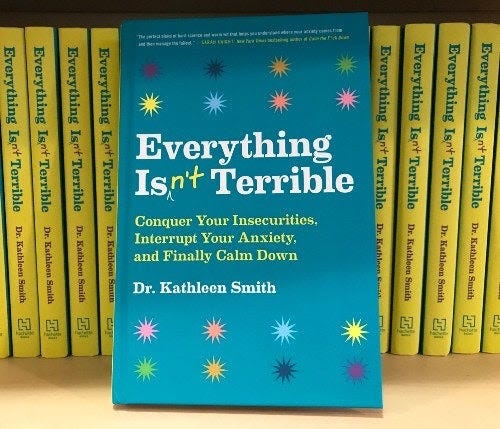How much of your own thinking goes into the decisions you make?
Most of our actions are born out of a mishmash of beliefs we’ve borrowed from others. In Bowen theory, it’s called our pseudo-self. The pseudo-self scoops up beliefs from a buffet of places and people, including:
Your partner’s thinking
Your family’s values
Trending “experts”
News media
Religious leaders
Your peer group
Your therapist
That video you saw on TikTok
Those frantic, 2am Google searches
It’s easy to “borrow self” when we have people eager to lend some to us. But what happens when you bring very little self, or even no self, to your relationships and life’s challenges?
Here are three things that can happen:
We focus on keeping things calm instead of finding the best way forward.
A lot of parents get stuck in this no-self position when they’re worried about a child, young or grown. They might throw a lot of money and professionals at the problem, or they’re always giving into the child’s demands to keep things calm. There isn’t much of their own thinking that’s happening.
We play along and let others eclipse us.
When you bring little self to a relationship, you can be eclipsed by a partner, a parent, or someone else important to you. Think of one circle swallowing another. Their beliefs become yours, their solutions become yours, their worries become yours. You might begin to underfunction in response to their overfunctioning, feeling more helpless than you really are.
We cut off contact with challenging people.
Cutoff can be a no-self decision if it is more about managing intense emotions than putting one’s best thinking into action. A person who anxiously cuts off from their family may have no more self than someone who gives in to the family’s demands. There are certainly good reasons to not have contact with people. But what is the cost when this becomes the automatic response in difficult relationships?
Again, it’s not about the action—it’s about the amount of self behind it.
How does a person learn to bring more of themselves to life’s decisions? It can look like:
Staying in contact with significant people.
Getting clearer about your own thinking.
Striving to not abandon your thinking in challenging relationships.
This week, I encourage you to think about an arena of life where you’ve been quick to borrow self from others. Do you usually defer to your partner’s thinking about parenting? Are you quick to follow the latest trends in diet culture? Have you adopted political or religious beliefs because you fear a group’s disapproval?
Sitting down to tease out what you really think about something takes time. But if you have more self in the game, you’ll spend less energy trying to chase after the attention or approval of others. You can have relationships where no one has to be eclipsed.
News from Kathleen
I was on The Meaningful Life podcast and talked about Bowen theory, forgiving your past self, and my anxious childhood as an overachiever. I also responded to a letter from one of the listeners.
For Medium’s Forge Mag, I wrote about how too much relationship focus can affect productivity. I also wrote about how to need less approval and attention from others.
Want to support my free newsletter? Buy me a coffee to keep the thoughts flowing.
Want to read more of my writing? You can read old newsletters at my website, or buy my book Everything Isn't Terrible from Amazon, Barnes and Noble, Indiebound, or your local bookstore (best option).
Want a free anxiety journal with the book? Calming Down & Growing Up: A 30 Day Anxiety Journal includes thirty daily prompts to help you reflect on and respond to your anxious behaviors. To receive a copy, just email me your receipt of Everything Isn’t Terrible.
Email me if you’re interested in Bowen theory coaching or want me to speak to your group or workplace. Follow me on Twitter, Facebook, or Instagram.
Want to learn more about Bowen theory? Visit the Bowen Center’s website to learn more about their conferences and training programs.




